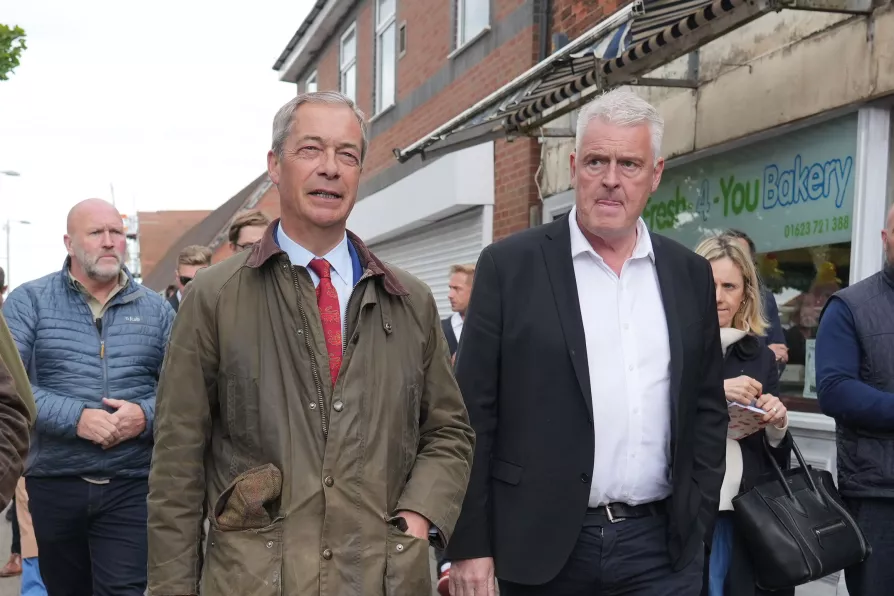As tens of thousands return to the streets for the first national Palestine march of 2026, this movement refuses to be sidelined or silenced, says PETER LEARY

 GAINING GROUND: Reform UK MPs Nigel Farage (left) and Lee Anderson
GAINING GROUND: Reform UK MPs Nigel Farage (left) and Lee Anderson
BRITAIN’S electoral map has changed with a significant shift in the voting behaviour of both the working class and the middle class.
The archaic disposition of seats in the Westminster Parliament — with His Majesty’s loyal ministers seated on one side of the chamber and His Majesty’s Loyal Opposition on the opposite benches draws on the liturgical traditions of the Christian church and formalises a now redundant disposition of political forces.
The greater diversity of political tendencies now present in Parliament — even though the deeply undemocratic FPTP system still distorts the real relations between the contending forces — would be better represented by the adoption of the republican model of a parliament, like the French and Scottish assemblies.
There the people’s representatives sit in an arc modelled on the epic theatre of classical antiquity which, in the modern era, reveals more clearly the distinctions between the new alignments of the reactionary right and hints at a new popular left constellation.
We should make the grotesque Palace of Westminster even more of a museum of oddities and build a new parliament of the people wherever HS2 eventually terminates.
* * *
Within politics, the tectonic plates are shifting and we need to devise a strategy that puts the working class at the centre of political progress on its own account while taking account of the newly salient fact that voting behaviour is far more complex than is accounted for by Westminster’s archaic geometry.
The Communist Party’s election co-ordinator Phil Katz reports that voters often agreed with the party’s economic policies but, on a variety of issues, thought a vote for Reform UK expressed their opinions.

From Gaza complicity to welfare cuts chaos, Starmer’s baggage accumulates, and voters will indeed find ‘somewhere else’ to go — to the Greens, nationalists, Lib Dems, Reform UK or a new, working-class left party, writes NICK WRIGHT

Reform’s rise speaks to a deep crisis in Establishment parties – but relies on appealing to social and economic grievances the left should make its own, argues NICK WRIGHT












